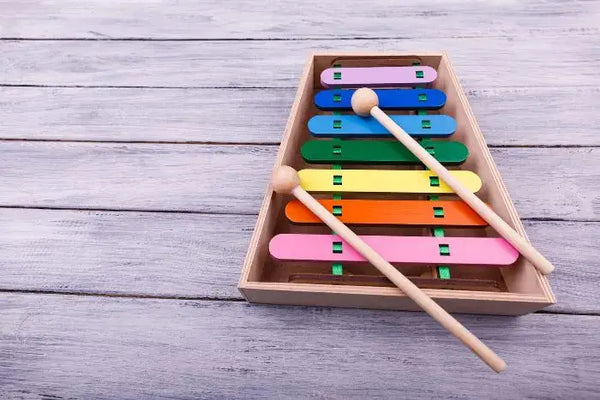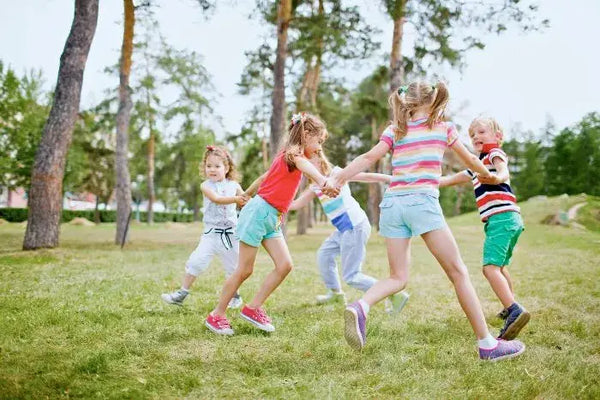Young children love music. They are exposed to it at home, at school and in their environment.
It is obvious that music brings a lot of pleasure to your children, but did you know how important it is for early childhood?
Play is important and music is one of the best types of play. Music plays a major role in the development of children.
Here are some reasons why music is so important to your children and why they should be exposed to musical activities at home on a regular basis.
Read on for simple ideas and musical activities you can try at home.
What is the importance of music in early childhood?
The benefits of music are enormous during the first years of life. It stimulates some of the following areas of development:
1. Brain development
Music promotes overall brain development and creates brain pathways that improve a child's cognitive functioning.
Musical activities help to develop language, reading and arithmetic skills. These aspects are explained in more detail below.
2. Language and vocabulary
Songs and rhymes expand the child's vocabulary and ability to use language correctly.
Repeating rhymes and popular songs helps children memorize new words. They also learn about language patterns and how words are placed together.
A well-developed vocabulary allows children to communicate effectively and learn to read with greater fluency and comprehension (reading to understand).
3. Auditory perception
Auditory perception is the brain's ability to make sense of what it hears through the ears. It is one of the most important skills for reading.
Children need to be able to hear different sounds, distinguish them from each other and manipulate them (for example, mixing an s and a t into a single st sound to read the word stop). They also need to be able to put sounds together and separate them so they can read and spell words.
Teaching children classic songs and rhymes is one of the best ways to develop their auditory perception. It's fun and kids learn auditory skills without much effort.
Rhymes without tail or head are ideal for sensitizing the child's ear to sounds, especially rhymes.
4. Sound patterns

As we said above, rhymes, poems and songs are used to learn sound forms.
These patterns appear through:
- rhymes
- rhythm
- instruments
- syllables in words
- accent patterns in a song
- alliteration, etc.
Patterns are actually the basis of literacy and numeracy. Learning about patterns through musical activities will help the child get along academically as they learn to read, write, spell, and count.
5. Motor Skills

Motor skills are extremely important for learning to read and write. They are developed in different ways during musical activities.
Fine motor skills (small muscles) can be developed in the following ways:
- Finger games
- nursery rhymes
- Play with instruments
- The manufacture of instruments (for example, a rice shaker).
Gross motor skills (large muscles) can be developed by:
- nursery rhymes
- Play with great instruments
- Musical games (for example, musical statues)
- Dance
Coordination, an important skill for children, can be learned through many musical activities. Music also enhances a child's sensory development, especially when combined with a movement activity such as dancing.
6. Self-expression
Music is a wonderful means of expression for children.
Through musical activities, children develop their sense of creativity and feel free to express themselves without judgement. Creative expression is an important part of child development.
7. Memory capacity
Children's songs are usually composed of repetitive phrases, which helps them develop their memory.
The tune and rhythm of songs and rhymes make it easy to memorize them. This allows the development of auditory skills as well as general memory skills, on which the child will rely throughout his schooling and beyond.
8. General well-being

Music is simply a fun activity that provides a sense of well-being.
Children are naturally drawn to music. They are not embarrassed when they sing and are not held back by fear and judgment like adults can be. They relax, sing and move freely.
In today's stressful society, an activity that relaxes a child and promotes their overall well-being should be encouraged frequently.


0 comments